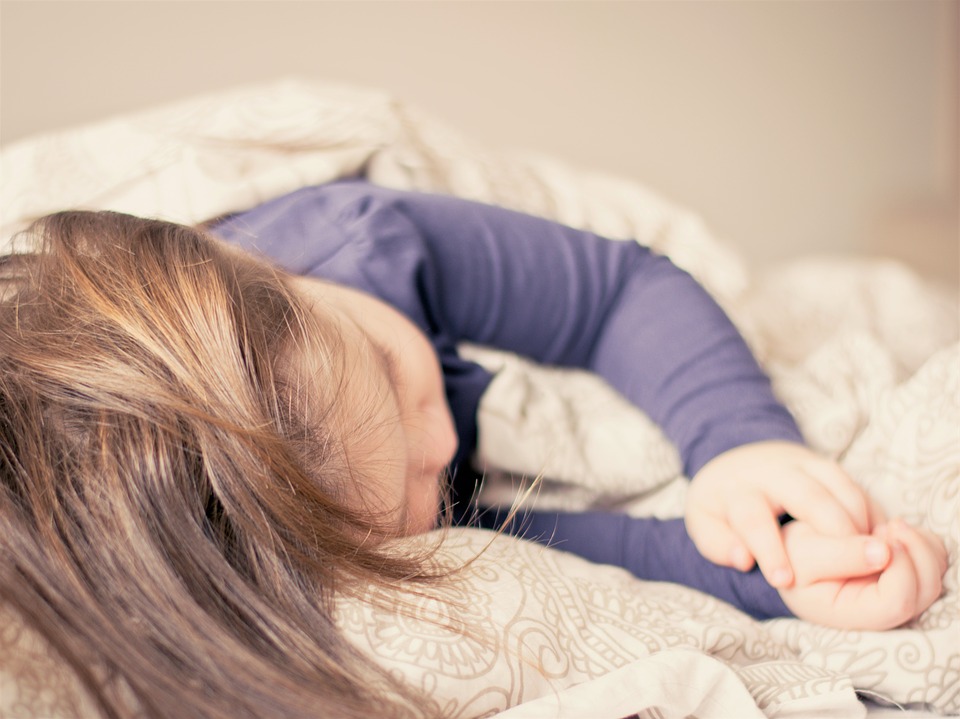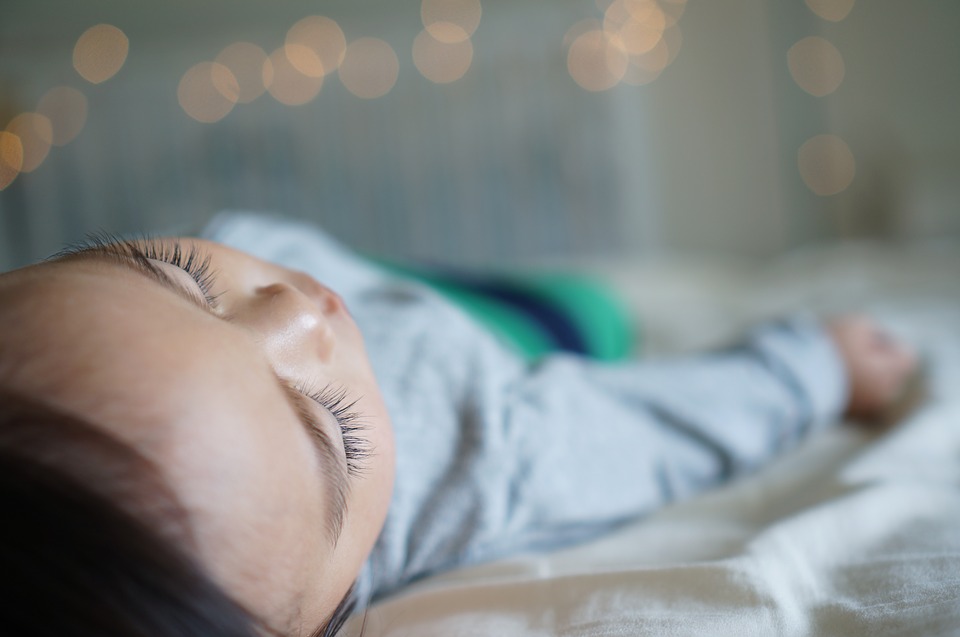Most grown-ups think back to when they were young and remember **easily** dozing off. But, it’s a bummer that today, about 25% of kids struggle to catch some Z’s, facing issues so tough they sometimes have to chat with a doctor. And yes, sometimes those docs even have to suggest medicine to help them sleep. Plus, a few moms and dads go the extra mile and pick up sleep aids from the store shelves. If you’re nodding along, wondering how to make bedtime less of a battle, stick around. I’ve got some secrets and surprises that could **change the game** for anyone keen to find a dreamy solution.
However, sleeping pills are in most cases a bad decision, primarily because sleep drugs are not made for children. All sleep pills work as a band-aid and not a cure, so this is not a long-term solution for your child’s problem. Also, there is a significant risk of overdose with sleep drugs because the doctor must change the adult dose to fit your child’s weight.
There is no prescription sleeping aid approved in the US to treat insomnia in children. Despite this fact, many kids are given antihistamines to induce sleep such as diphenhydramine or even hypnotic sleep aids. Common antihistamines given to children are Nytol, Sominex, and Benadryl Allergy. When it comes to hypnotic sleep aids and prescription pills, some doctors prescribe Zolpidem (Ambien). Lastly, some physicians recommend taking melatonin supplements. However, although melatonin is safe for adults, there are no studies that have confirmed kids can safely use it. In fact, there has been little research on its use in children, and long-term effects and risks are unknown.
Study Shows Children are Often Treated with Sleep Drugs
According to a study conducted by the researchers from the Ohio State University and the University of Missouri, and published in the journal Sleep in 2007, kids with sleep problems are often prescribed sleeping pills that are only approved for adults. In the study, researchers have evaluated more than 18 million samples of children’s doctor visits for sleep issues, and more than 80% of visits included a prescription for a sleep drug.
Although sleep experts agree that medication for children may sometimes help with insomnia, the medication must always be used in combination with other approaches, such as behavior changes. Most kids evaluated in the study that had sleep problems were aged from 6 to 12.
Among the prescribed sleeping drugs were Ambien and Sonata, but also some medicines that can help with sleep issues, but primarily are not a sleep medicine. For example, often prescribed an antihistamine to help the child sleep is Atarax. Doctors can also suggest using the antidepressant Desyrel, and the high blood pressure medicine Catapres.
| PRESCRIBED DRUG TYPE |
BRAND NAME |
NUMBER OF VISITS (%) |
| Antihistamines |
Atarax |
33% |
| Blood pressure drugs |
Catapres |
26% |
| Benzodiazepines |
Restoril |
15% |
| Antidepressants |
Desyrel |
6% |
| Non-benzodiazepine drugs |
Ambien, Sonata |
1% |
When doctors prescribe meds that are not approved for kids, they have to do it “off-label”, and that is a common and completely legal practice.
Why Children Have Sleep Problems?
Children can have sleep problems for many reasons. However, in most cases, those problems are caused by the way parents, and kids interact about sleeping. For example, not having a regular bedtime routine can cause sleep issues in children. In 99% of the cases, changing the parents’ and kids’ bedtime habits and behaviors solve common sleep problems such as insomnia.

If you want your child to sleep better, you should teach him good sleep habits. Remember that you are their role model, so you have to stick the same (or similar) bedtime habits and behaviors you want to see in your children.
Most common sleep problems children experience is insomnia, but sleep difficulties in school-aged children also may include sleepwalking, restless sleep, nightmares, and sleep talking. In teens, the biggest problem is inadequate sleep. The cause of sleep issues in children, apart from poor sleep habits, is a bad diet, such as consuming too much caffeine, especially through sodas.
What to Do If a Doctor Recommends a Sleep Drug?
In case your children have sleep issues for a more extended period of time, and the doctor suggests to take sleep pills, it’s critical to ask about the possible risks and side effect of the medicine. Make sure you ask if the drug will really help solve your kid’s sleep problem. Check if there are non-drug solutions that could help, such as changing your child’s bedtime behaviors.
Using Sleep Medicines for Children
If your child’s doctor prescribes them a medicine like melatonin or a sedative for sleep, they will probably suggest that the sleep aid is used for a short time, and in combination with behavior strategies that should improve your overall child’s sleep habits. Behavior strategies should help your kid to sleep better even when he or she stops using the prescribed medicine.
Since some sleep pills are available in health food shops or over the counter in pharmacies, it’s important never to give these meds to your kids without talking to a doctor. A child can take sleep pills only when their physician is supervising their treatment.
Herbal Sleep Remedies safe for Kids
Natural sleep remedies such as chamomile, passion flower, and valerian are available in many health food shops, but there isn’t enough evidence that these herbal sleep aids can help children to sleep better. Herbal teas are also good natural sleep remedies for babies and toddlers. Good news is that herbal teas don’t have many side effects, but you should also have in mind that they don’t go through the same testing as medicines prescribed by your doctor, or bought at the pharmacy.
Sleep Supplements
Melatonin is a hormone supplement and a neurotransmitter naturally produced by the pineal gland in the brain. The secretion of this hormone is naturally controlled by light. Higher levels of melatonin induce sleep, while lower levels cause you to wake up. Melatonin is vital for maintaining our circadian rhythm – the internal body clock from day to day.
Melatonin medicine is often prescribed as autism insomnia medication or when a child has attention deficit hyperactivity disorder (ADHD), or a visual problem such as blindness. It can also be prescribed to teens that have troubles falling asleep at night and waking up in the morning. Although melatonin doesn’t have any severe side effects, melatonin sleep aid cannot be used for toddlers.
Sedative Medications
Sedative medications often include antihistamine drugs such as Vallergan and Phenergan. These meds aren’t recommended to kids younger than 3. In children, antihistamine drugs cause side effects like crankiness, hyperactivity, and daytime drowsiness. Using sedatives for sleep won’t help your child solve their sleep problem without combining them with healthy sleep habits.
Benzodiazepines
Benzodiazepines such as Restoril are rarely prescribed to kids because the effects of this drug in children haven’t been studied enough. Most sleeping pills or tablets, no matter whether they are OTC or prescribed cause addiction. You must never give your children medicines that were prescribed for someone else.
Alternative Treatments for Children with Sleeping Problems
Apart from prescribing sleep pills “of label”, around 7% of kids were suggested diet and nutritional counseling, and 22% were prescribed behavioral therapy and stress management to relieve insomnia. Approximately 19% of kids were advised both medication and behavioral therapy.
When it comes to sleep problems, parents are the ones that can help their kids the most. It is imperative to set a healthy bedtime routine and make the bedroom environment in the child’s room as comfortable for sleep as possible. Sleep and wake up time should be the same every day, and kids shouldn’t have TV or video games in the room. Caffeine shouldn’t be taken after lunch.
Lastly, it’s important to know how much sleep your child needs. An infant requires up to 15 hours of sleep a day. Children aged 1 to 5 need 12 to 14 hours of sleep. Kids from 6 to 12 need 9 to 11 hours of shuteye and teen need 8 to 9 hours of sleep per night.
How to Improve Bedtime Behaviors?
If your children have troubles falling asleep, instead of reaching out to over-the-counter solutions such as Ozzzz’s sleep aid or kids melatonin gummies, try improving kids’ sleep habits first. If your kids are young (toddler or a preschooler), don’t stay with them until they fall asleep. If a child wakes up in the middle of the night, and realize there is no parent around, they will probably get upset. It’s best to leave the room when your child gets sleepy. That way, he or she will gradually learn to feel comfortable sleeping alone.

- Never reward a child when he or she refuses to go to bed by throwing tantrums, making up excuses or similar. Reward them only when they show good bedtime behaviors.
- Good bedtime snacks for toddlers or older kids are food with melatonin such as tart cherries, pomegranates, olives, grapes, tomatoes and so on. Healthy bedtime snacks with help increase melatonin levels naturally.
- If you have older children (pre-teens) with sleep problems, make sure they don’t stay up too late in the evening or sleep in on weekends. Creating a consistent sleep schedule in most cases helps to solve their sleep issues.
When Should Your Child Visit a Doctor?
If you have concerns, don’t hesitate to talk to a physician. A good pediatrician may refer your child to a counselor or a sleep expert for help.
Sleep Related
Let us know if you liked the post. That’s the only way we can improve.
A wannabe journalist who somehow ended up as an art historian. She is a gamer, a coffee addict and a sleep aficionado. When she is not researching about sleep and finding out new ways to fight off the insomnia beast, she's spending time with her friends, gaming or visiting local museums.

